Don’t you feel lonely sometimes when you are travelling solo? asked The Crying Belgian Man. With his sad eyes, he looked a bit like an abandoned puppy. I met him in Ohrid. Over a glass of Skopsko beer, he told me his life story. He travelled on his motorbike through the Balkans to deal with the heartbreak as if kilometres would have a magical capability to heal the soul.
It was a good question. A few years ago, my answer would be No, I don’t feel lonely when I travel. Everything on my first trip alone was new and exciting. There was no room for loneliness. Other emotions filled all the space: joy, fear, and occasionally pure euphoria. But over time, all of these faded, freeing some territory for occasional loneliness.
Some people are terrified of loneliness when travelling alone. Of having no one to talk to, of the long evenings filled with silence, of feeling like a weirdo when walking alone on the streets full of joyful groups of tourists. Why do we fear it so much if there is no harm in it? How can we cope with feeling lonely on the road or even embrace it?
Accepting loneliness
Loneliness is just an emotion. Sure, it is not enjoyable. It makes you feel inadequate, out of place. Sometimes it manifests as a slight tingling in all my body. Quite an unpleasant sensation. Understandably, our first instinct is to get rid of it.
I used to push it away, pretend it doesn’t exist, drown it out. Smile and find a distraction, keep myself occupied. Now I just let it be. As soon as I acknowledge: I am a bit lonely now, but I know it will pass, it just becomes less bothering. You just learn to live with it. You don’t kill the monster, only tame it.
Sometimes it is helpful to observe your emotions. Am I lonely because I see people around, with their partners or friends, and I project that they are happier than I am? Am I scared of something? Understimulated and bored? Or maybe I am just hungry?
I know, the last one sounds like a completely random idea: how the hell can someone confuse being hungry with being lonely? Surprisingly, the same circuits in your brain are responsible for your drive for social interactions and craving food, so you really can feel more lonely when you are hungry. Or binge-eat when feeling lonely. (Check out the great podcast of neuroscientist Andrew Huberman (38:05 for this specific topic) to learn more about it. I recommend you to listen to the whole episode, that gives a lot of interesting scientific information about our social life).
If you lack something during your trip, be kind to yourself and listen to your needs. Try to be for yourself that friend, travel companion you are missing right now.
Structure helps
Solitude is more enjoyable if you’re in control of it, writes Madeline Cass in You Can Learn to Love Being Alone. Embracing being on your own is easier if it is a conscious choice and if you decide why you do it.
That’s why The Crying Belgian Man found it so difficult. His solitude was not voluntary – he was travelling with a friend who suddenly wanted to part ways. To accept being alone is more difficult if you didn’t choose it.
If you know what you are doing with your time alone, solitude feels less like a burden or limitation and more like an opportunity. You’ve got all that time for yourself. There is no need to agree with anyone else on what to do with it. This freedom can be overwhelming though, so you need structure to not get completely lost.
I tend to struggle with it, as my brain sees any structure as a limitation. But staying organised and having some goals allow you to make your time alone more meaningful. Create some rituals: a morning coffee, an evening journaling session, a sunset photoshoot. Don’t forget to leave some time to do nothing.
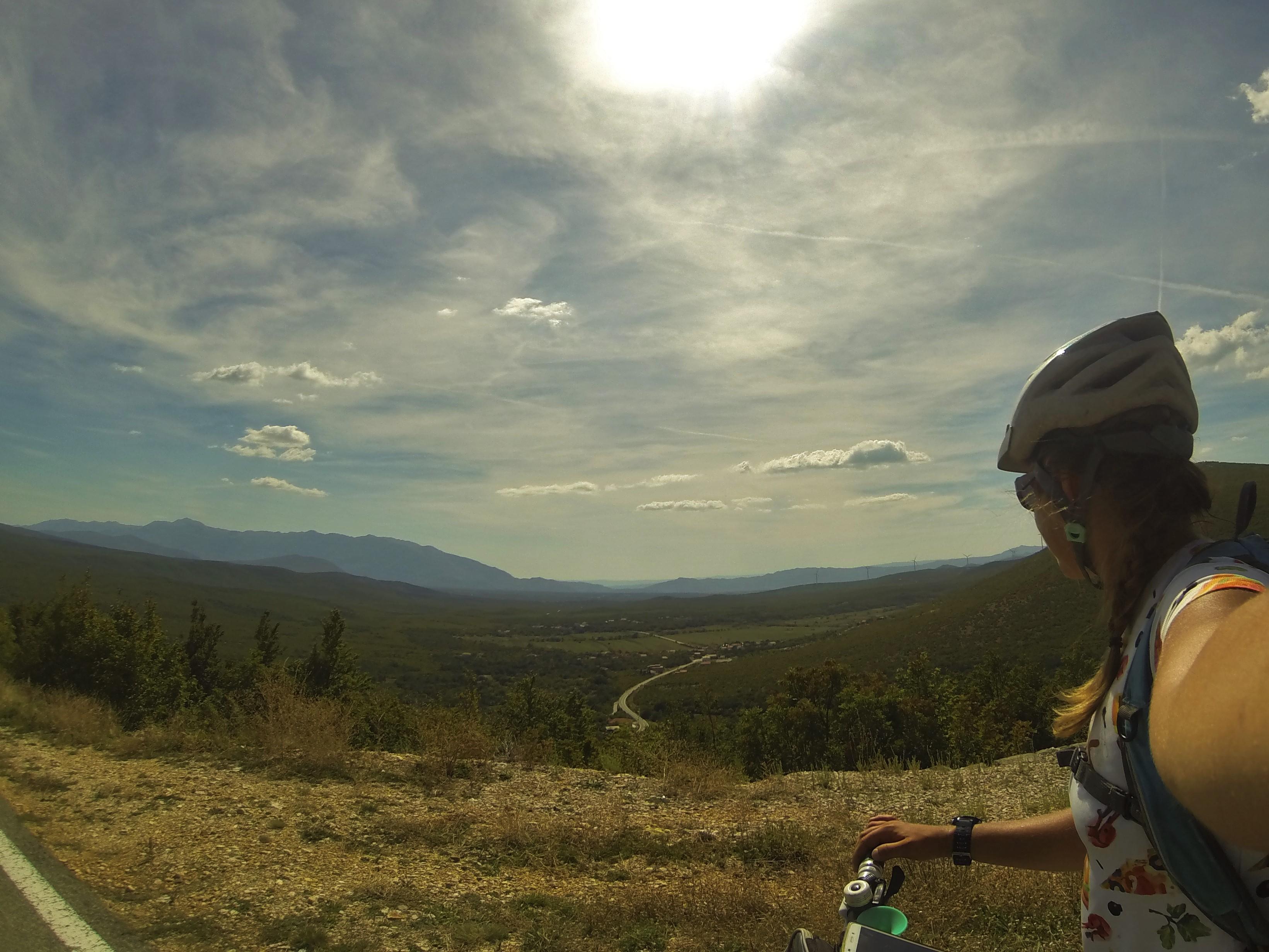
Sitting alone in silence in front of your tent allows you to better process your thoughts and experiences, clears your brain from clutter and enhances creativity. It might feel uncomfortable, especially if you are not used to it. If you always hang out with people, listen to music, or engage in conversations on social media, you will feel restless. Start small. Set times during the day, when it’s just you, and some time to stay connected with people at home or to connect with people around you.
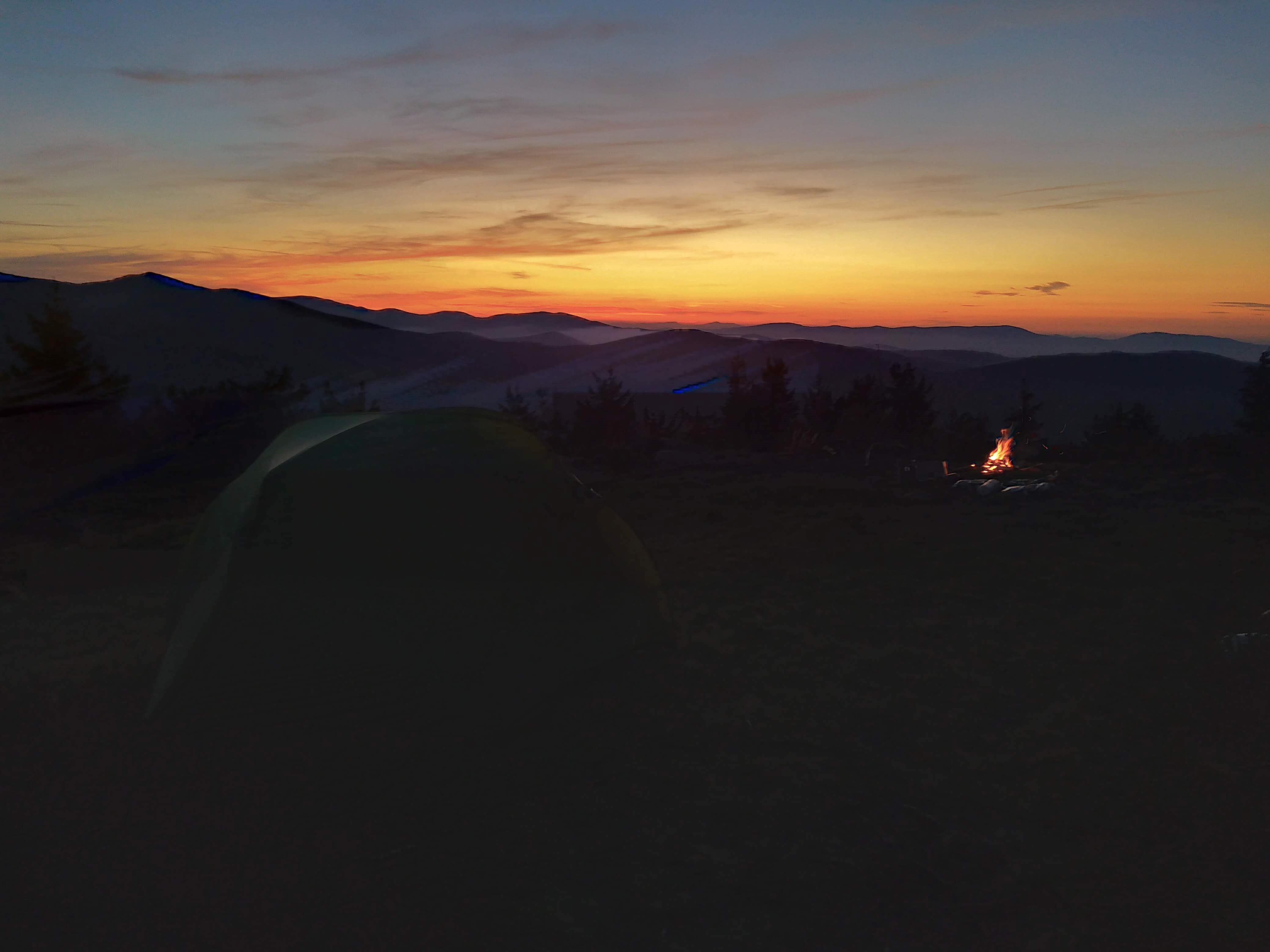
We are social animals, and even the most introverted people need human interactions. However, how much of it one needs is an individual matter. Some are ok with not talking to anyone for days, others get their energy from spending time with people and need to socialise more often.
Solitude can be very satisfying when it is voluntary. But if you are forced to be alone for too long, it doesn’t serve you anymore. When I headed on a solo trip in the Summer of 2020, I thought I would enjoy it as much as I always did before. But after months with reduced social interactions (first working in a small town in the mountains in Norway and then because of Covid and social distancing), I was hungry for time with people.
I wanted to share things with someone. Being alone started to feel like a burden. I reached the point when I desperately craved human connections.
- Enjoy the little encounters. Talk to the cashier when you do grocery shopping. Say hi to the kids you pass by when cycling to the countryside. Even if you don’t know the local language, the smiles and gestures of strangers can reduce your loneliness.
- Stay in hostels. It is an easy way to find like-minded travellers. You can join them for a few days to explore the country together. If you use booking.com, look for hostels with good reviews from solo travellers – it is easier to connect with other people travelling alone than with groups.
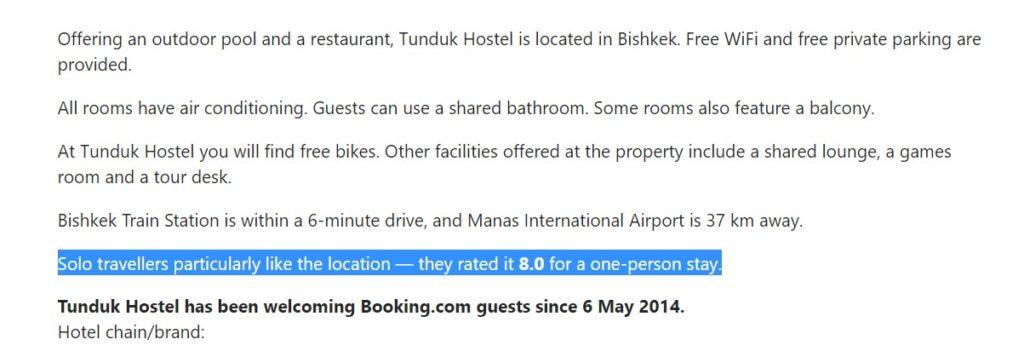
- Use Couchsurfing or WarmShowers. Staying in other people’s homes is a great way to get to know the local culture and find new friends. Check out my article on the safe use of CouchSurfing as a solo travelling woman here.
- If you don’t want to use CouchSurfing as a guest, you can also try Hangouts and Events.

- Check what intensity of social interactions works best for you and adjust your itinerary accordingly. On some of my trips, I was wild camping solo for 2 nights in a row and then spending a night in a hostel or on CouchSurfing. It would allow me to have a perfect balance between me-time and time spent socialising.
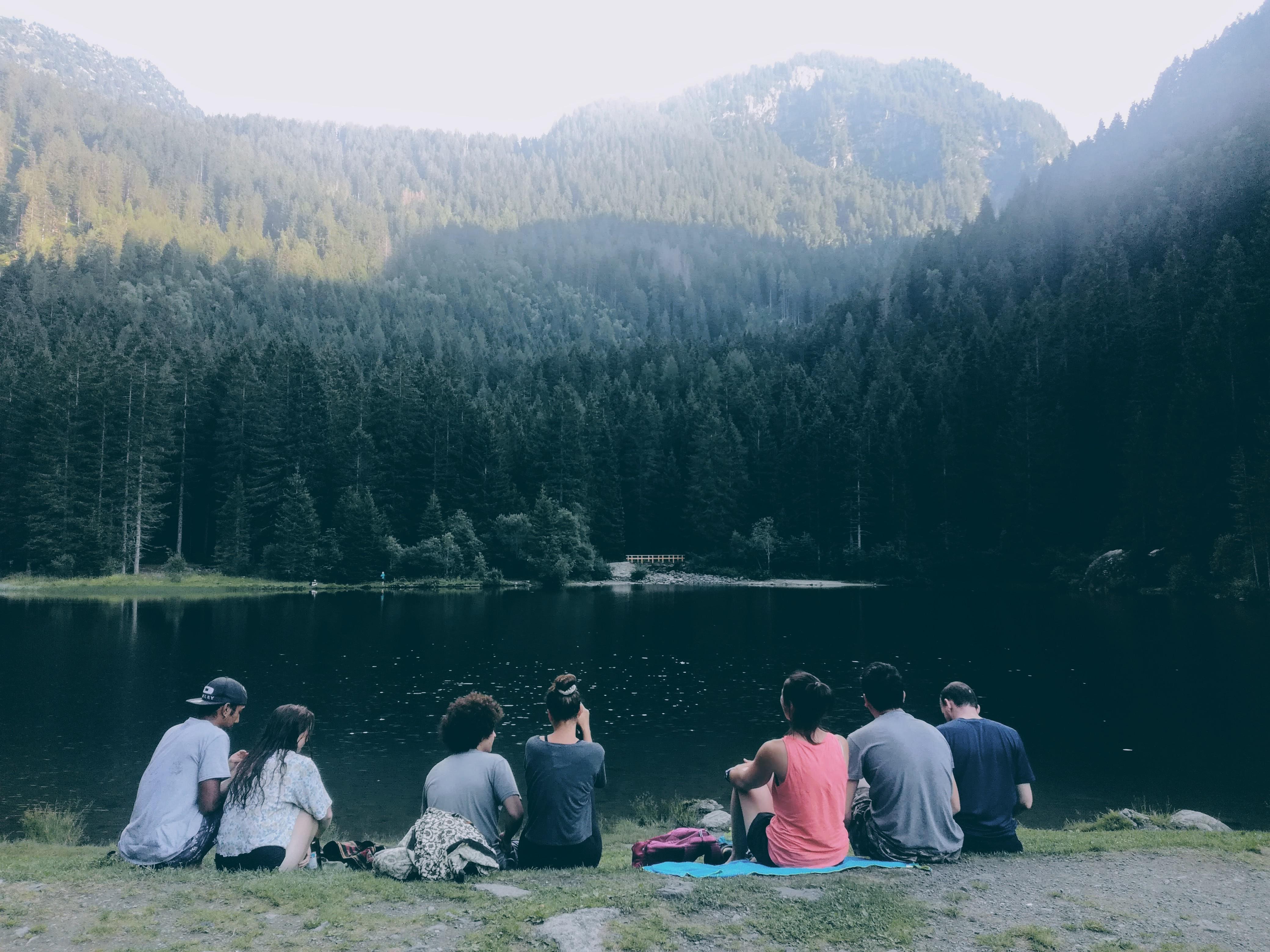
Don’t get caught in a constant attempt to be with other people. You are a good company too.
What if travelling solo is not for me?
You might think that solo travel is not for you. That you don’t enjoy being on your own. That you are too extraverted and enjoy being with people too much. Maybe you tried, and the loneliness has overwhelmed you so you decided it’s not your thing.
There are certainly people who feel better in their own company than the others. The lone wolves, the independent wanderers, who enjoy the evenings spent with their own thoughts. You don’t see yourself as one of them? Should you push yourself and try again? Is there any worth in travelling alone? Or maybe it’s just not for everyone?
Like everything worth something, solo travelling takes practice. You need to get used to not having someone to talk to, eating by yourself, making all decisions alone.
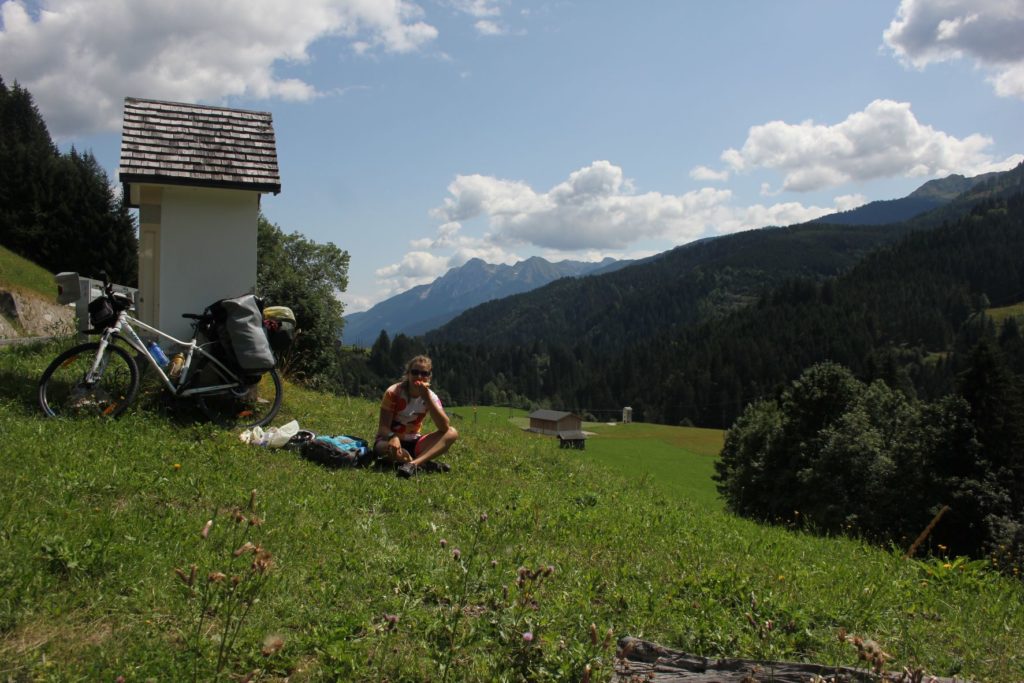
If you learn to tolerate the initial discomfort, you will find that travelling solo opens new possibilities. It teaches you a lot about yourself, but it can also improve the satisfaction of your social interactions.
Think of the time spent alone as fasting. If you haven’t had anything to eat for hours, how amazing is your favourite food gonna taste when you finally have your dinner? Even a simple pasta with pesto tastes great when you are hungry. After spending some time on your own, you learn to appreciate people next to you, and the encounters become more fulfilling and meaningful.
Even if you are an extrovert, a real social animal, travelling alone can be an enriching experience for you. It allows you to find space for your own thoughts, boost your creativity and improve the quality of your social interactions.
Travelling solo, you will experience loneliness sometimes. Sometimes you will experience it also when being around people. Loneliness is not as dangerous as it seems. If you accept it instead of trying to combat it, you will learn to experience solitude as joy.
Everyone has different ways to cope with loneliness. Do you remember when you felt loneliest during your travels? Share with me in the comments how you dealt with it!